
Are you a small business owner? Do you worry about the safety of your company’s data and information? In today’s digital age, cyber threats are a real concern for businesses of all sizes. That’s why it’s crucial for you to have a strong cybersecurity plan in place.
In this article, we will guide you through the steps of protecting your company from cyber threats. We will help you understand the various cybersecurity threats that small businesses face and show you how to create an effective cybersecurity plan.
We will also provide you with tips on securing your networks and systems, protecting your data and information, and managing vendor and third-party risks.
Additionally, we will discuss the importance of incident response and recovery, as well as the need to stay informed and up to date on the latest cybersecurity measures.
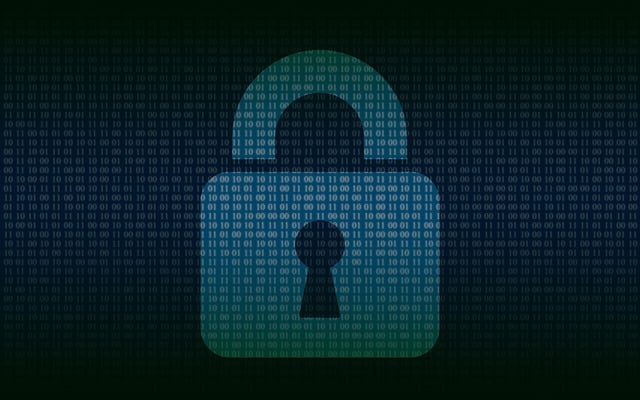
Don’t let cyber threats compromise your business. Read on to learn how to safeguard your company’s digital assets.
Key Takeaways
- Small businesses face real cyber threats and must have a strong cybersecurity plan in place.
- Investing in cybersecurity measures such as firewalls, antivirus software, and employee training is crucial.
- Cybersecurity breaches can result in financial loss, reputational damage, and disruption of business operations.
- Small businesses should prioritize staying informed about cybersecurity threats, utilizing government and industry resources, and implementing multi-factor authentication to enhance network security.
Introduction
You’re about to discover how important it is for your small business to prioritize cybersecurity and protect your company from cyber threats.
As a small business owner, you may think that cyber attacks only happen to large corporations, but that couldn’t be further from the truth. In fact, small businesses are often targeted by cybercriminals precisely because they tend to have weaker network security and less robust data protection measures in place.
Investing in cybersecurity for small businesses is crucial to safeguarding your company’s sensitive information and maintaining the trust of your customers. By implementing strong security measures, such as firewalls, antivirus software, and regular software updates, you can significantly reduce the risk of falling victim to cyber threats.
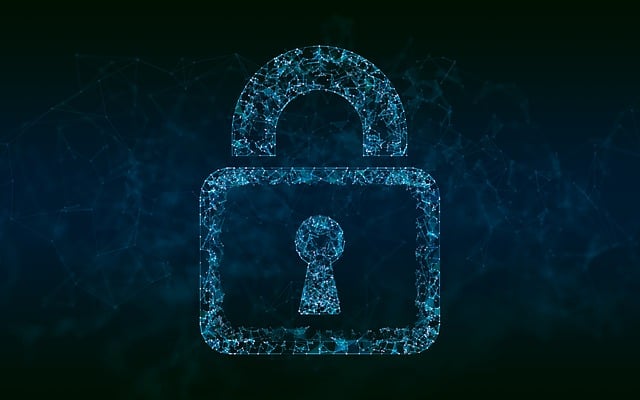
Additionally, providing your employees with proper training on cybersecurity best practices will help them recognize and respond to potential threats effectively.
Don’t underestimate the importance of cybersecurity for your small business. Take action now to protect your company and ensure its long-term success.
Understanding Cybersecurity Threats for Small Businesses
In this section, you’ll explore the common cyber threats that small businesses face and the consequences of cybersecurity breaches. It’s important for you to understand these key points in order to effectively protect your company from potential harm.
By being aware of the types of threats and the potential consequences, you can take proactive steps to safeguard your business and its sensitive information.

Common Cyber Threats Faced by Small Businesses
Small businesses face common cyber threats that can have devastating consequences if not properly addressed. Phishing attacks, for example, trick employees into revealing sensitive information or downloading malicious software. Malware infections can infiltrate systems and compromise data, leading to financial loss or reputational damage.
To protect your company, it’s crucial to implement robust security measures. Firewalls act as a barrier between your network and potential threats, blocking unauthorized access. Encryption is another essential tool, ensuring that sensitive data remains unreadable to unauthorized individuals.
By staying informed about common cyber threats and investing in proactive cybersecurity measures, you can shield your small business from these digital dangers.
Consequences of Cybersecurity Breaches for Small Businesses
The consequences of cybersecurity breaches can be catastrophic for small businesses. They can leave businesses vulnerable to financial ruin and irreparable damage to their reputation. Small businesses are increasingly becoming targets for cyber threats due to their limited resources and lack of robust cybersecurity measures.

A successful cyber attack can result in significant financial losses for small businesses. This includes theft of sensitive customer information, loss of intellectual property, and disruption of business operations. The impact on a small business’s reputation can be devastating. It can lead to a loss of customer trust and potential business opportunities.
Recovering from a cybersecurity breach can be costly and time-consuming for small businesses. It often requires legal assistance, IT support, and public relations efforts. Therefore, it is crucial for small businesses to prioritize cybersecurity and implement proactive measures to protect themselves against cyber threats.
Creating a Cybersecurity Plan
Assessing cybersecurity risks and vulnerabilities is crucial for protecting your small business from cyber threats. By identifying potential weaknesses and vulnerabilities in your systems, you can take proactive measures to strengthen your cybersecurity defenses.
Establishing cybersecurity policies and procedures is also essential. It provides guidelines and protocols for your employees to follow, ensuring that everyone is aware of the best practices for protecting sensitive information and preventing cyber attacks.
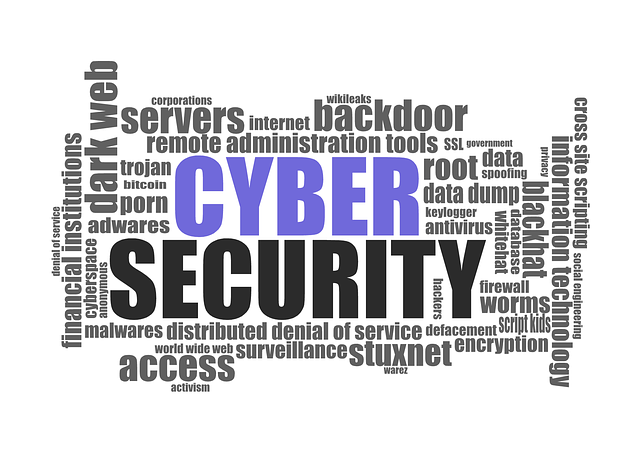
Assessing Cybersecurity Risks and Vulnerabilities
In the labyrinth of cybersecurity, small businesses must navigate the treacherous terrain of assessing their vulnerabilities and risks. Like a ship captain charting uncharted waters, they search for hidden reefs and dangerous currents.
When it comes to cybersecurity for small businesses, protecting your company from cyber threats is of utmost importance. Assessing cybersecurity risks and vulnerabilities should be a top priority for any business owner.
By conducting a thorough assessment, you can identify potential weaknesses in your systems and processes. This allows you to take proactive measures to mitigate the risks. It includes evaluating your network security, employee training, and data protection practices.
It is crucial to stay updated on the latest cybersecurity threats and trends. This ensures that your company’s defenses are strong and resilient. Remember, protecting your company from cyber threats is an ongoing process that requires constant vigilance and adaptation.

Establishing Cybersecurity Policies and Procedures
Navigating the labyrinth of cybersecurity, small business owners establish policies and procedures that serve as a compass to guide their company through the treacherous terrain of cyber threats.
To ensure the safety of your business, it’s essential to develop a comprehensive cybersecurity policy. This policy should align with industry best practices, such as the NISTIR guidelines and the Small Business Information Security: The Fundamentals.
By following these frameworks, you can create a robust information security plan for your small business. This plan should address key areas such as password management, data backup and recovery, and employee training and awareness.
It should outline clear procedures for handling security incidents and establish protocols for regularly monitoring and updating your security measures.

By implementing these policies and procedures, you can protect your company from cyber threats and safeguard your sensitive data.
Securing Networks and Systems
In order to effectively secure your networks and systems, there are several key points to consider.
- First, implementing network security measures such as firewalls and intrusion detection systems can help protect against unauthorized access and malicious attacks.
- Additionally, ensuring the secure configuration of devices and software, such as regularly updating and patching systems, can help prevent vulnerabilities and minimize the risk of cyber threats.
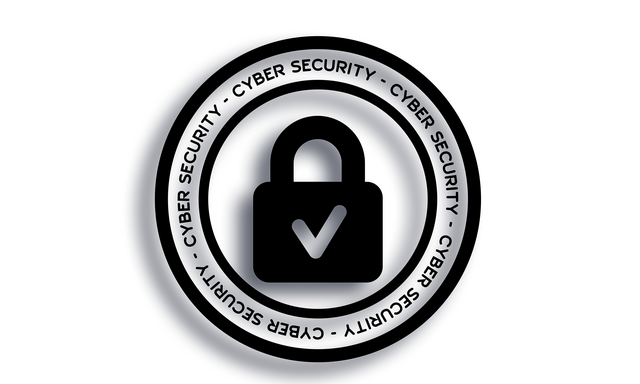
By taking these steps, you can significantly enhance the security of your company’s networks and systems.
Network Security Measures
Securing your small business network is like building a fortress with firewalls and IDS acting as your digital army, warding off cyber threats.
Network security for small businesses is crucial, as they are often targeted by cybercriminals due to their limited resources and lack of robust cybersecurity measures.
Implementing a firewall for your small business is a fundamental step in protecting your network. It acts as a barrier between your internal network and the external world, monitoring and filtering incoming and outgoing traffic.

Small business internet security also involves regularly updating and patching your systems to address vulnerabilities.
Additionally, adopting small business network security best practices such as strong passwords, limiting access privileges, and educating employees about cybersecurity risks for small businesses can significantly enhance your overall security posture.
By prioritizing network security measures, you can effectively safeguard your business from potential cyber threats.
Secure Configuration of Devices and Software
Regularly updating and configuring your devices and software is crucial for establishing a strong defense against potential vulnerabilities. In the world of cybersecurity for small businesses, protecting your company from cyber threats is of utmost importance. One key measure to achieve this is through the secure configuration of devices and software.

By properly configuring your devices and software, you can minimize the risk of unauthorized access, data breaches, and other cyber attacks. This involves implementing strong passwords, enabling automatic software updates, and disabling unnecessary features or services.
Additionally, it is essential to regularly patch and update your devices and software to fix any security vulnerabilities that may arise. By taking these steps to secure your devices and software, you can greatly enhance your company’s cybersecurity posture and reduce the risk of falling victim to cyber threats.
Protecting Data and Information
In order to protect your data and information, it’s essential to implement data encryption. This will ensure that your sensitive information is secure and cannot be accessed by unauthorized individuals.
Additionally, regularly backing up your data is crucial. This will ensure that you have a copy of your information in case of data loss or corruption.

Lastly, implementing access controls will help restrict access to your data. This ensures that only authorized individuals can view or modify it.
Data Encryption
To protect your small business from cyber threats, it’s crucial that you encrypt sensitive data both in transit and at rest, ensuring its security and integrity.
Data security for small businesses is of utmost importance, as cyber security threats for small businesses are on the rise. Encrypting your data is one of the most effective cybersecurity strategies for small businesses.
By encrypting your data, you convert it into a code that can only be deciphered with the right decryption key. This ensures that even if your data is intercepted or stolen, it remains unreadable and useless to unauthorized individuals.

Implementing strong encryption protocols and using reputable encryption software is essential to safeguarding your small business against cyber threats.
Don’t underestimate the importance of data encryption in protecting your company’s valuable information.
Regular Data Backups
Regularly backing up your data is a vital step in preserving the integrity and availability of your valuable information. In the realm of cybersecurity for small businesses, protecting your company from cyber threats requires implementing a comprehensive backup strategy.
By regularly backing up your data, you ensure that even in the event of a cyber attack or data breach, your critical information remains safe and accessible. Regular backups act as a safety net, allowing you to quickly restore your systems and minimize downtime in case of any unforeseen incidents.
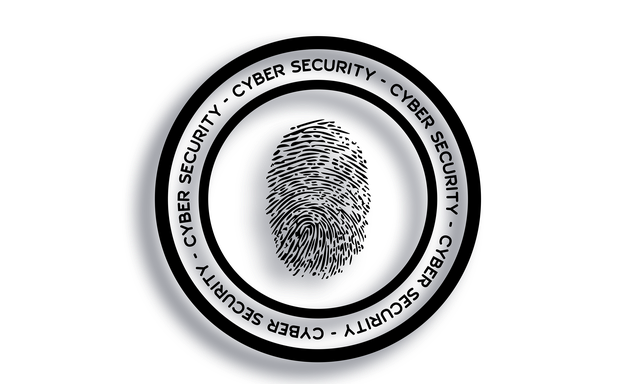
It is essential to establish a regular backup schedule and ensure that your backups are stored securely, either on-site or off-site, to protect against potential data loss. Remember, regular data backups are a crucial component of your overall cybersecurity strategy.
Implementing Access Controls
Now that you understand the importance of regular data backups, let’s delve into the next crucial aspect of cybersecurity for small businesses: implementing access controls.
Protecting your company from cyber threats requires more than just backing up your data; it also involves restricting access to sensitive information on a need-to-know basis. By implementing access controls, you can ensure that only authorized individuals have access to your company’s valuable data, reducing the risk of data breaches and insider threats.
Small business security threats are on the rise, making it essential to invest in network security solutions specifically designed for small businesses. These solutions can help you establish robust access control measures, such as user authentication, encrypted communication channels, and role-based access privileges.

With proper access controls in place, you can fortify your company’s defenses against cyber threats and safeguard your valuable assets.
Educating Employees on Cybersecurity
To protect your small business from cyber threats, it’s crucial to educate your employees on cybersecurity. Implementing employee training programs will ensure that your staff is aware of the latest security protocols and best practices.
Additionally, teaching them about phishing awareness and social engineering tactics will help them identify and avoid potential cyber attacks.
Employee Training Programs
Implementing employee training programs is crucial for small businesses to effectively protect their company from the ever-evolving landscape of cyber threats.

Employee training programs play a vital role in promoting cybersecurity for small businesses and ensuring that employees are equipped with the necessary knowledge and skills to identify and mitigate potential cyber risks.
These programs should cover a wide range of topics, including best practices for password management, recognizing phishing attempts, and handling sensitive data securely.
By educating employees on the importance of cybersecurity and providing them with practical training, small businesses can create a culture of security and significantly reduce the risk of cyber attacks.
Additionally, it is essential for small businesses to establish an information security policy that outlines the expectations and guidelines for employees to follow regarding cybersecurity practices.

Overall, investing in employee training programs is an essential step in protecting your company from cyber threats.
Phishing Awareness and Social Engineering Training
To ensure you’re equipped to recognize and avoid phishing attempts, it is essential to participate in phishing awareness and social engineering training. Phishing awareness training is a crucial component of cybersecurity for small businesses. It educates employees on the tactics used by cybercriminals to deceive and manipulate individuals into sharing sensitive information or installing malware.
By understanding the signs of a phishing attempt, such as suspicious emails or unexpected requests for personal information, employees can become the first line of defense against cyber threats.
Social engineering training complements phishing awareness training by teaching employees how to identify and respond to manipulative tactics used by hackers, such as pretexting or baiting.

Investing in these training programs allows small businesses to strengthen their cybersecurity posture and minimize the risk of falling victim to phishing attacks and social engineering tactics.
Managing Passwords and User Accounts
To ensure the security of your company’s data, it’s crucial to have strong password policies in place. This includes:
- Enforcing the use of complex passwords
- Regularly updating passwords
- Avoiding the use of common or easily guessable passwords
Additionally, implementing multi-factor authentication (MFA) adds an extra layer of protection. MFA requires users to provide multiple forms of verification to access their accounts.
By following these practices, you can significantly reduce the risk of unauthorized access and protect your business from cyber threats.

Strong Password Policies
Creating and maintaining strong password policies is crucial for small businesses in order to safeguard their sensitive data from cyber threats.
Implementing complex passwords and regularly updating them can significantly enhance your company’s cybersecurity.
By enforcing a strong password policy, you ensure that employees use passwords that are difficult to guess and less susceptible to brute force attacks.
Encourage the use of long passwords with a combination of uppercase and lowercase letters, numbers, and special characters.

Additionally, it is important to educate your employees on the importance of not reusing passwords across different accounts.
Regularly reminding them to change their passwords can also mitigate the risk of unauthorized access.
By prioritizing strong password policies, you can significantly reduce the likelihood of a cyber attack and protect your business from potential financial and reputational damage.
Implementing Multi-Factor Authentication (MFA)
Implementing Multi-Factor Authentication (MFA) significantly reduces the risk of unauthorized access. Studies show that 99% of account breaches could have been prevented by using MFA. This is crucial for small businesses, as they are often targeted by cyber threats.

By implementing MFA, you add an extra layer of security to your user accounts. This makes it more difficult for hackers to gain access. MFA requires users to provide multiple forms of identification, such as a password and a unique code sent to their mobile device. This ensures that even if one factor is compromised, the account remains secure.
It is important to integrate MFA into your small business firewall and SMB network security. This will protect against potential threats. By implementing MFA, you enhance your small network firewall, making it significantly more robust and secure.
Vendor and Third-Party Risk Management
When it comes to managing vendor and third-party risk, it’s important to assess the security practices of your partners. This involves understanding how they handle sensitive data and ensuring they have proper security measures in place.
Additionally, creating vendor agreements that outline expectations and requirements can help protect your company from potential cybersecurity threats.
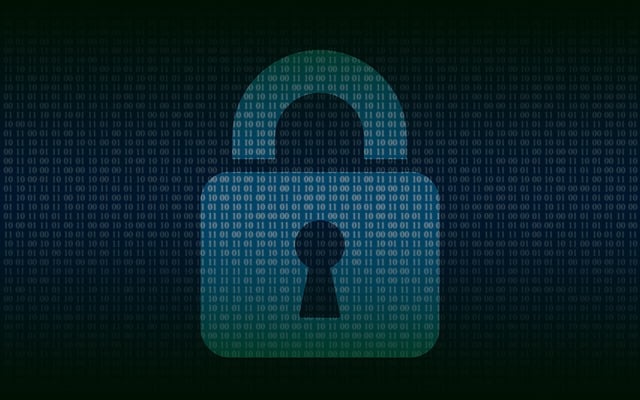
Assessing Security Practices of Vendors and Partners
Assessing the security practices of vendors and partners is essential for small businesses to defend against cyber threats. Evaluating the cybersecurity measures and policies of vendors and partners is crucial in protecting your company from potential breaches. As a small business owner, it is important to ensure that your vendors and partners adhere to cybersecurity best practices. Look for vendors who offer cyber security services specifically tailored for small businesses. Take the time to review their security and privacy policies to ensure they align with your company’s standards. By assessing the security practices of vendors and partners, you can effectively reduce the risk of cyber threats and safeguard your business from potential vulnerabilities. Keep in mind that cyber security should be a top priority in all aspects of your operations as a small business owner.
Creating Vendor Agreements
Crafting vendor agreements is like weaving a protective shield, ensuring the strength and reliability of the partnerships that fortify your business.
When it comes to cyber security for small businesses, protecting your company from cyber threats requires a comprehensive approach that includes assessing the security practices of vendors and partners.
Vendor agreements play a crucial role in this process, as they establish clear expectations and responsibilities for both parties. These agreements should outline the specific cyber security measures that vendors must adhere to, such as regular vulnerability assessments, data encryption, and employee training.
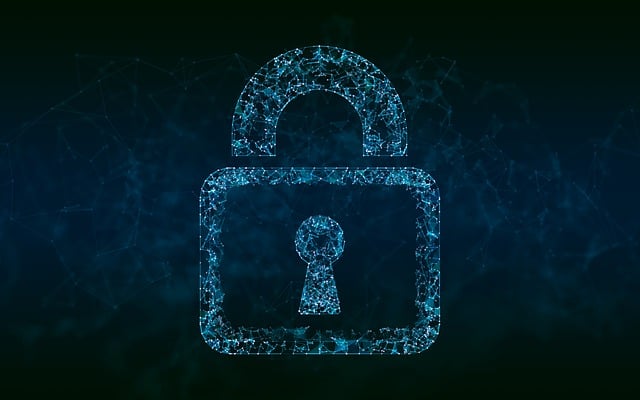
Additionally, they should include provisions for incident response and breach notification, ensuring that any security incidents are promptly addressed and communicated.
By creating thorough vendor agreements, you can strengthen your company’s defense against cyber threats and foster a secure business environment.
Incident Response and Recovery
To effectively handle and mitigate the impact of cyber incidents, you need to develop an Incident Response Plan specific to your business. This plan should outline the steps to take when an incident occurs, including how to detect, contain, and recover from the incident.
Regularly testing and updating your Incident Response Plan is crucial to ensure its effectiveness and relevance in addressing emerging cyber threats and evolving business needs. By doing so, you can enhance your ability to respond swiftly and effectively to cyber incidents, minimizing their impact on your business.

Developing an Incident Response Plan
When developing an Incident Response Plan, it’s crucial for small businesses to have a proactive approach in order to effectively protect their company from cyber threats.
An incident response plan is a detailed strategy that outlines the steps to be taken in the event of a cybersecurity incident.
For small businesses, having a well-developed incident response plan is vital as they are often targets for cybercriminals due to their limited resources and security measures.
By having a plan in place, small businesses can minimize the impact of cyber threats and ensure a swift recovery.

The incident response plan should include clear guidelines on how to detect, respond, and recover from cyber incidents.
It should also involve regular training and testing to ensure that all employees are aware of their roles and responsibilities.
In conclusion, developing an incident response plan is a key component of cybersecurity for small businesses in protecting their company from cyber threats.
Regularly Testing and Updating the Incident Response Plan
Regularly testing and updating the incident response plan ensures its effectiveness and relevance, keeping your small business one step ahead of potential cybersecurity incidents.
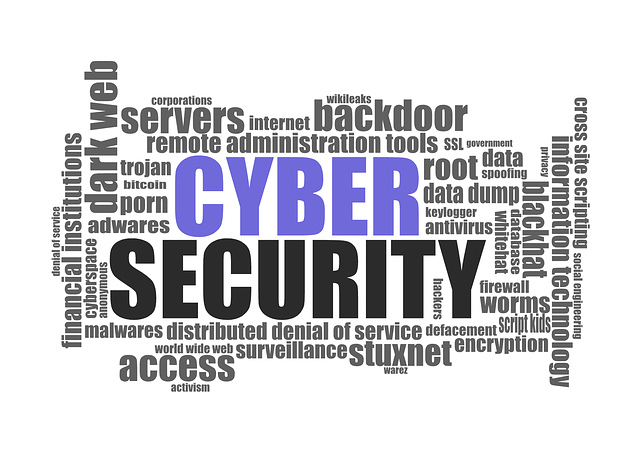
In the ever-evolving landscape of cybersecurity for small businesses, it is crucial to protect your company from the ever-growing number of cyber threats. By regularly testing your incident response plan, you can identify any weaknesses or vulnerabilities and address them promptly. This proactive approach allows you to stay ahead of cybercriminals and mitigate potential damages.
Additionally, testing enables you to assess the plan’s effectiveness and make necessary updates to align with the latest cybersecurity trends and best practices. Regularly reviewing and updating your incident response plan ensures that it remains robust and capable of handling any cyber threats your business may face, providing you with peace of mind and a strong defense against potential attacks.
Staying Informed and Up to Date
To stay informed and up to date with the latest cybersecurity news and trends, you should regularly follow trusted sources and industry experts. Engaging with cybersecurity resources such as blogs, forums, and online communities can also provide valuable insights and opportunities to learn from others’ experiences.
By staying informed, you can better understand emerging threats, industry best practices, and new technologies to strengthen your company’s cybersecurity defenses.

Following Cybersecurity News and Trends
Stay on the cutting edge of cybersecurity news and trends so you can navigate the digital landscape like a savvy captain sailing through treacherous waters. As a small business owner, it is crucial to stay informed about the latest cyber threats and security measures.
By following cybersecurity news and trends, you can ensure that you are equipped with the knowledge and tools necessary to protect your company from cyber threats.
Stay updated on topics such as:
- Cyber security for small companies
- Cyber security for SMBs
- Cyber security policy for small businesses
- Security for small businesses
- Cyber security for online businesses
By staying informed, you can proactively implement the necessary security measures to safeguard your business and its valuable assets from potential cyber attacks.

Engaging with Cybersecurity Resources
Explore a wealth of valuable resources to enhance your knowledge and fortify your defenses against potential cyber attacks.
When it comes to cyber security for small businesses, staying informed and connected with the right resources is essential. Start by utilizing government resources such as the Federal Communications Commission (FCC) and the National Institute of Standards and Technology (NIST), which offer comprehensive guides and best practices for small businesses.
Industry organizations like the Small Business Administration (SBA) and the National Cybersecurity Alliance (NCSA) also provide useful tools and educational materials.
Additionally, consider engaging with cyber security companies that specialize in serving small businesses. They can offer tailored solutions and expertise to help protect your company.
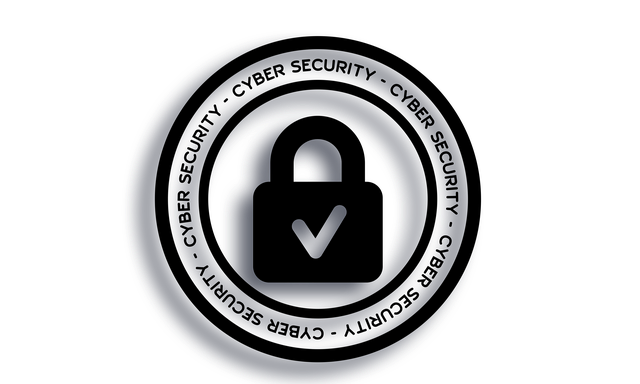
Don’t forget to check out the Cyber Security Policy for Small Business PDF, a valuable resource that provides guidance on implementing effective cyber security policies.
By utilizing these resources, you can better safeguard your business from cyber threats.
Conclusion
Don’t be foolish, neglecting cybersecurity for your small business could lead to disastrous consequences. As a small business owner, it is crucial to prioritize cybersecurity measures in order to protect your company from cyber threats.
The ever-evolving digital landscape presents numerous risks that can have severe impacts on your business. By implementing proactive cybersecurity practices, you can safeguard your sensitive data, financial information, and customer records. This includes regularly updating your software and operating systems, using strong and unique passwords, and educating your employees about best cybersecurity practices.

Additionally, investing in a robust firewall and antivirus software can provide an extra layer of protection. Remember, cyber threats are not limited to large corporations – small businesses are equally vulnerable. By taking cybersecurity seriously and staying vigilant, you can mitigate the risks and ensure the long-term success of your small business.
You must prioritize cybersecurity for your small business. By implementing a robust plan, securing networks and systems, and protecting sensitive data, you can stay one step ahead of cyber threats.
Remember, the risks posed by vendors and third parties should not be ignored, so make sure to manage them effectively.
In the event of an incident, a prompt response and recovery plan are crucial. Stay informed and updated on the latest cybersecurity trends to keep your company safe.

Don’t wait for disaster to strike; act now to safeguard your business.
You might also like to read on these cybersecurity articles on Get Hitch
Ethical Hacking: Understanding the Role of White Hat Hackers in Cybersecurity
Data Breaches: Steps to Take When Your Personal Information Is Compromised








